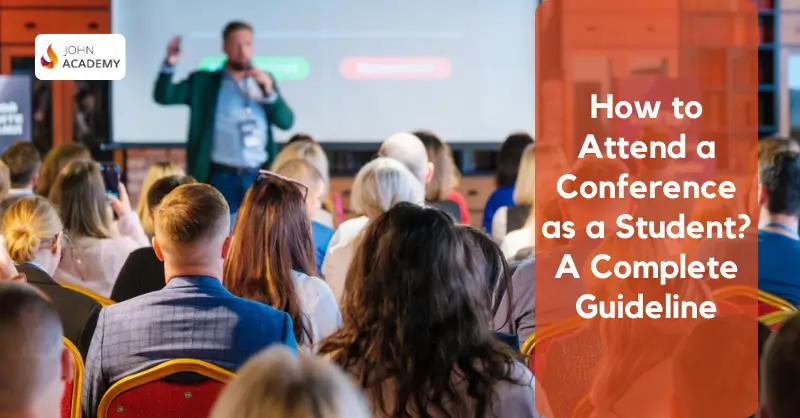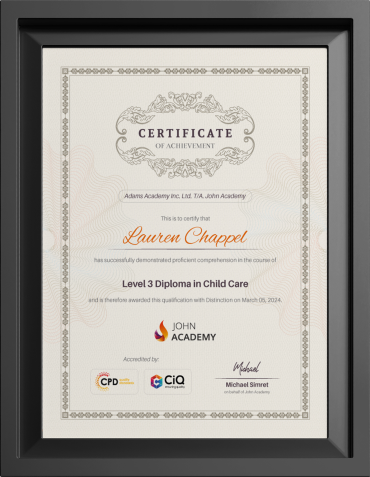
Attending a conference by students can be a thrilling and life affirming experience, providing an important opportunity to delve into the latest research, networking and knowledge gained by renowned experts. If students plan with an accurate strategy, it can be beneficial for them to get maximum benefits from this conference. Here we are mentioning some crucial guidelines on How to Attend a Conference that can help students in selecting their first conference and grab the best out of each moment. It can embed the potential to choose their career and profession in future also.
How to Attend a Conference as a Student?
1. Pre-Conference Preparation:
- Researching a relevant conference: You should start by researching a topic relevant to your subject or interest.
- Complete Early Registration: You should complete the Registration process earlier to avail the early-bird discounts and ensure your seat to attend important sessions and workshops
- Plan Your Schedule: You should analyse the programs related to the conference to choose the workshops and events that are relevant to your subjects and goals and mark the calendar to ensure your attendance at the important events.
2. Networking:
- Prepare Your Basic Pitch: You should prepare a brief introduction of your requirements such as your interests.
- Visiting Cards: You can bring visiting cards having information of your contact information.
- Participate Actively: Connect with speakers by asking questions, panel discussions. Building a Network with other professionals is an important benefit of these conferences.
3. During the Conference:
- Balance in Attending Sessions: Maintain balance during attending sessions mainly of your interest and work field.
- Note Important Information: You can carry a notebook to note down important points during the sessions.
- Explore the Conference Hall: You can visit the conference hall before or after the session to learn about the latest mechanisms and devices.
4. Post-Conference Follow-Up:
- Review the Outcome: After compiling the sessions you should revise your notes and introspect the experience you have gained during the events and try to apply it in your studies.
- Follow-Up: Have a follow-up with other participants to strengthen connections.
- Share Your Insights: Share your insights with others that you have grabbed while attending the conference. It can expand your learning but also help to improve others’ knowledge.
How do you Prepare for Attending a Conference?
Research for Relevant Conferences and Register: You should start by searching for relevant conferences through international conference alerts websites that reconcile with your subject and interest and complete the registration process earlier to avail discounts and reserve your place for important events.
Analyse the Plan and Set the Schedule: After registration, revise the details of the conference like sessions, workshops, and speakers that align with your agenda. Mark the important events.
Prepare Important Material: Make sure to have your visiting cards have complete information regarding you that helps in expanding networking.
Refresh Your Profile: Update your online profile on LinkedIn or other online platforms.
Carry important Documents: Complete your important documents like booking tickets, registration and identity proof required to attend a conference.
Observe Networking Objectives: Observe specific events and speakers with whom you want to build a network.
Set Goals: Determine the goals to improve your knowledge or skills.
Pack comfortable and professional Attire: Pack your bag with comfortable and professional clothing and footwear to make you feel confident and comfortable.
What is the Importance of a Conference for Students?
1. Experience Latest Research:
You as a student can get a significant chance to know about the latest research and technologies in your field of interest. Attending events by famous speakers, and practical sessions can improve your learning experience and also a chance to stay updated to advance innovations.
2. Networking:
Networking is an important part of attending conferences. Students can get an opportunity to create a network with experts, mentors, and other students. A Network can help you to exchange knowledge and experience that can help to lead collaborations, and mentorship in future.
3. Professional Enhancement:
Students used to attend hands-on workshops and panel discussions conducted by professionals offering opportunities to communicate and manage projects that can help to adopt their future profession. These events develop the skills and work experience of students. Presenting at a conference improves the speaking skills of the students.
4. Inspiring and Motivational:
Attending conferences can be Inspiring for the students. Students get a chance to get knowledge of the success stories of experts as well as challenges they have faced during their work period and how they overcome those challenges. Hearing from experts can be inspiring and motivational for the students. They can take an interest in their projects with full enthusiasm and try to handle the challenges with their confidence.
5. Getting Feedback from Critiques:
Students can get a chance to present their research at a conference allowing them to get feedback from experts. This critique and feedback are important to improve their working and learning skills. It helps the students to refine their future professionalism too.
6. Recognition in Academic:
Students can get recognition in academic certification by participating in conferences. It showcases their dedication and commitment to their studies and professional interests. Students can add this to their resume to enhance their academic profile.
Guidelines for Attending a Conference First Time
Attending a conference for the first time can be both exciting and intimidating. Here are some guidelines to help you make the most of the experience:
1. Pre-Conference Preparation:
- Researching a relevant conference: You should start by researching a topic relevant to your subject or interest.
- Complete Early Registration: You should complete the Registration process earlier to avail the early-bird discounts and ensure your seat to attend important sessions and workshops. You should analyse the programs related to the conference to choose the workshops and events that are relevant to your subjects and goals and mark the calendar to ensure your attendance at the important events.
2. Plan Your Schedule:
- Select Prioritize Events: You should select the events, lectures, and workshops of your interest. Make a planned schedule to manage the time more efficiently.
- Have a Backup plan: You have to select some alternative sessions also in case your priority will change or get some other good options.
3. Networking:
- Prepare Your Basic Pitch: You should prepare a brief introduction of your requirements such as your interests, and your intention of insights that you want to grab from such conferences.
- Participate Actively: Connect with speakers by asking questions, panel discussions. Building a Network with other professionals is an important benefit of these conferences. Students should try to get the most of the benefits by attending these conferences.
4. During the Conference:
- Reach Early: Reaching early can help you to get a good place and a chance to network.
- Note the important points: You can bring a notebook to write down important points to retain important information and recall it for the future.
5. Post-Conference Follow-Up:
- Analyse your experience: You should revise your notes and interpret the experience you have grabbed during the events and try to apply it in your studies
- Follow-Up: Have a follow-up with other participants to strengthen connections.
Conclusion
Attending a conference can be insightful for students offering opportunities for learning, networking, and professional development. Good preparation and management of time will ensure confidence and professional success for students.


